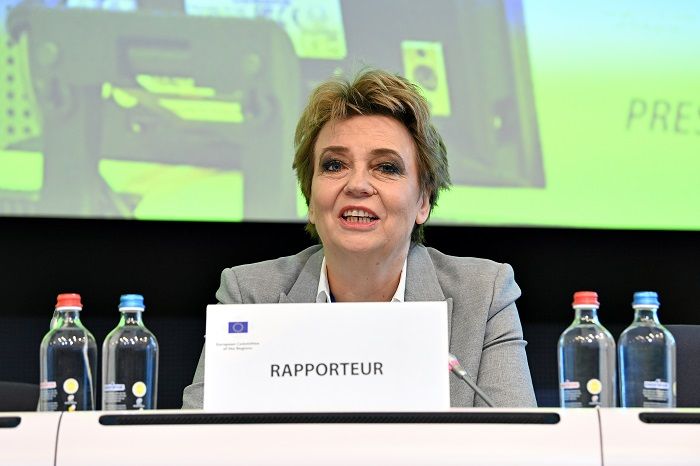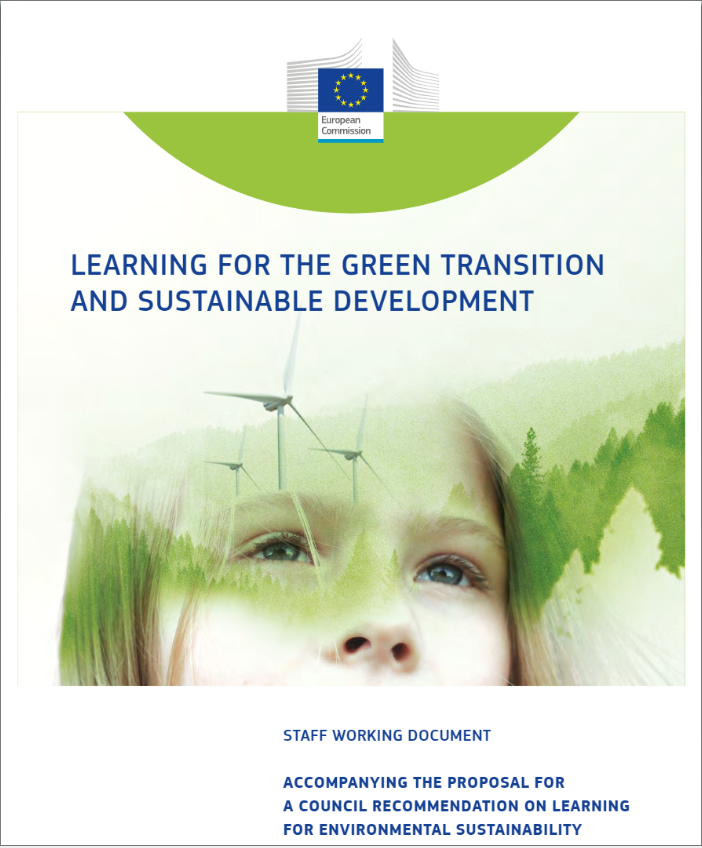
Belgium – Brussels – June 2022
© European Union / John Thys
Hanna ZDANOWSKA
Mayor of Łódź
At the request of the Council of the European Union, the EU’s assembly of cities and regions has adopted an opinion on the environmental imperatives and social acceptability of the ecological transition. The European Committee of the Regions has greenlighted the proposals of the rapporteur Hanna Zdanowska (PL/EPP), Mayor of Lodz, which puts forward a series of economic and social measures to ensure that the European Green Deal – the EU’s sustainable growth strategy to reach climate neutrality by 2050, is grounded in a strong social acceptability and leaves no citizen, territory nor business behind.
Hanna Zdanowska (PL/EPP), Mayor of Lodz and Polish Ambassador of the Covenant of Mayors, said: “The success of the ecological transformation depends on a quick creation of the right conditions at the European and national level for the implementation of green actions by local and regional authorities. We call for direct EU funds to cities and regions to deliver the Green Deal locally as well as to move forward the diversification of energy sources and achieve independence from Russian fossil fuels. In that context, we need to boost energy efficiency within the Renovation Wave and speed up the deployment of renewable energies in our cities and regions. The EU’s ecological transformation must be based on a strong social acceptability and leave no citizen, territory nor business behind. Therefore, we propose organising permanent local dialogues and local climate summits to succeed in the ecological transition.”

How to protect vulnerable groups from climate change? |
The Committee denounces the over centralisation of EU funds and calls for the rules on access to resources to be revised, with members pointing out that funds are programmed at national level, including EU cohesion policy, Recovery and Resilience Facility, Just Transition Fund, Modernisation Fund, as well as those directly aimed at the local and regional levels such as LIFE and the Connecting Europe Facility.
To accelerate the green transition and the Renovation Wave, the CoR calls on the European Commission to grant direct funds to local and regional authorities to implement Green Deal projects. Moreover, it asks the Member States to redirect unused funds from the Recovery and Resilience Facility to support local energy security planning and investments in renewable energy sources and energy efficiency. The Committee calls on the European Commission to review the rules for financing municipal services, to reduce cost burden of energy efficiency and renewable energy measures and to reduce and simplify regulatory barriers for new technologies and business models.
To boost social acceptance, the Committee suggests several measures, including greater use of participatory governance – for example through participatory budgets and local dialogues – and financial support for permanent consultation mechanisms such as local climate summits. The Committee also proposes stepping up the activities of existing networks such as the Ambassadors of the Covenant of Mayors and of the Climate Pact and calls on the European Commission and Member States to finance public awareness campaigns to boost energy savings.
The Committee requests that the Social Climate Fund is established under a system of shared management that respects the principles of partnership and multilevel governance. City-to-city cooperation is key to foster climate action replication across the EU. The Committee calls on the European Commission to consider setting up climate hubs as information points and dedicated instruments for technical assistance and information exchange at the local level, including study visits.
Local and regional leaders call on the European Commission and Member States to lower barriers to setting up local renewable energy communities, as a key measure to build the EU’s energy sovereignty and leave Russian fossil fuels behind. Cities and regions also request new measures to develop the social economy, including an adapted taxation framework and specific public procurement and State aid rules.
Local leaders call for sustainable production to be stimulated by means of extended producer responsibility for an ever greater number of products and is in favour of modernising the Industrial Emissions Directive. More cross-border sustainable energy projects and infrastructure need to be developed, members agree. The CoR calls for additional legislation to ensure circular economy principles are extended to all products and goods in the EU market.
The Committee defends the one health approach, acknowledging the need to protect nature and restore biodiversity, habitats and ecosystems to safeguard citizen’s health. The one heath approach is a key pillar of the EU’s Zero-Pollution Stakeholder Platform.
Background:
Local and regional authorities as key actors in the green transition. The Committee recalls that local and regional authorities implement 70% of all EU legislation, 70% of climate change mitigation measures, 90% of climate change adaptation strategies and 65% of the Sustainable Development Goals, as well as carrying out one third of public spending and two thirds of public investment.
Through Green Deal Going Local, the CoR is committed to support cities and regions in implementing the European Green Deal.
Local and regional authorities are kindly invited to provide feedback on their experience implementing the Green Deal in this online survey and to share their climate commitments here.

Learning for the green transition and sustainable development |






Leave a Reply